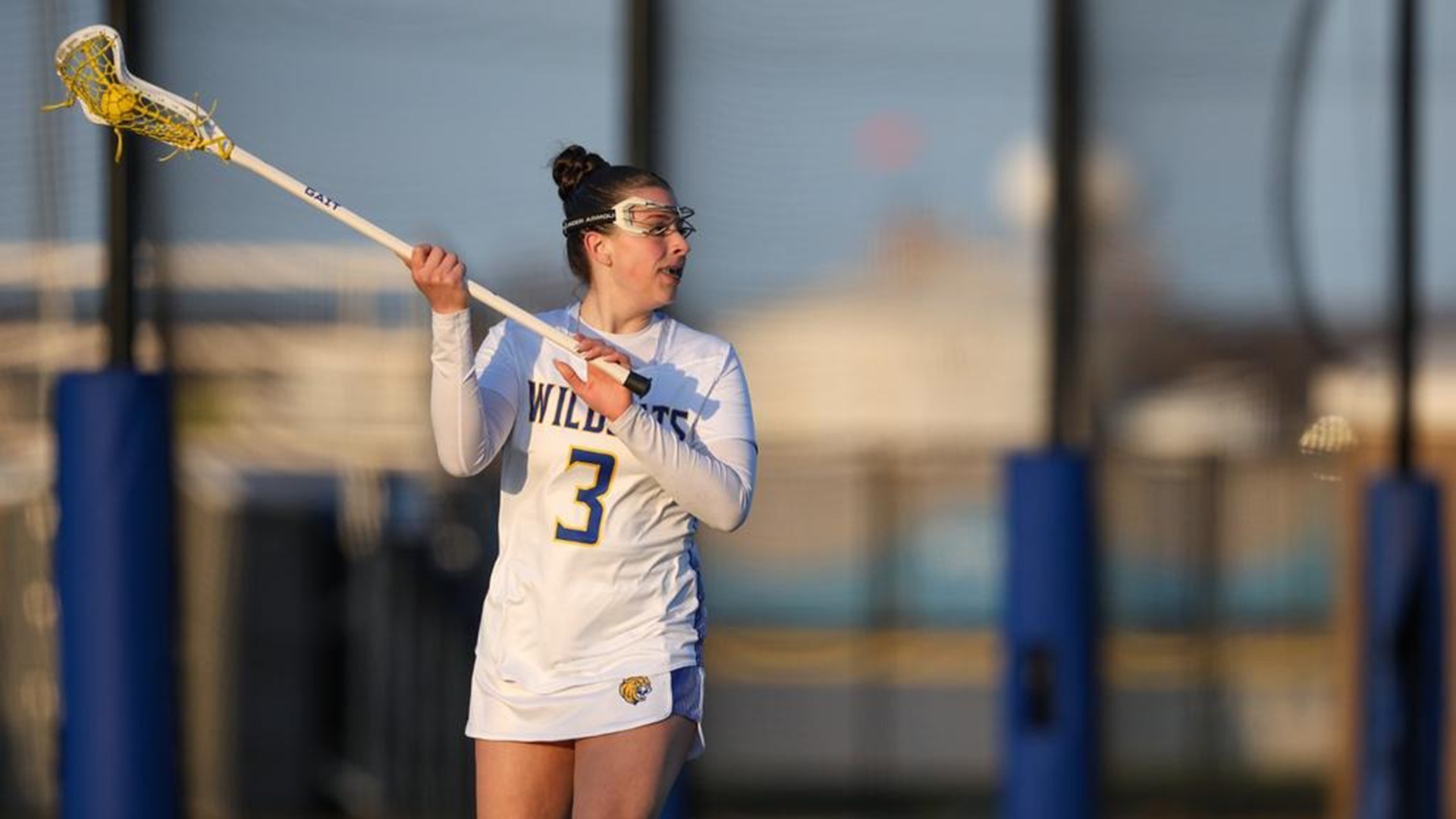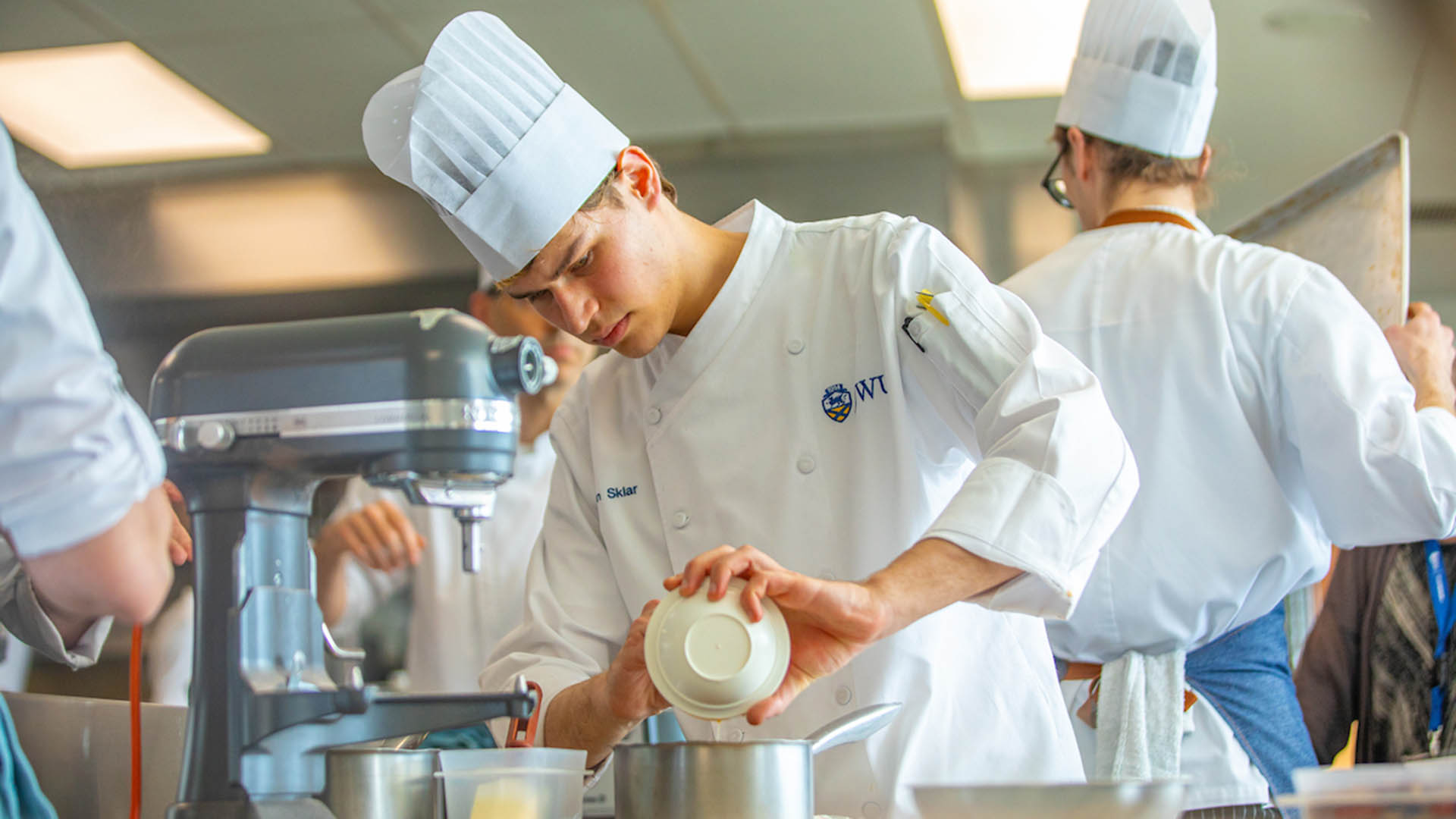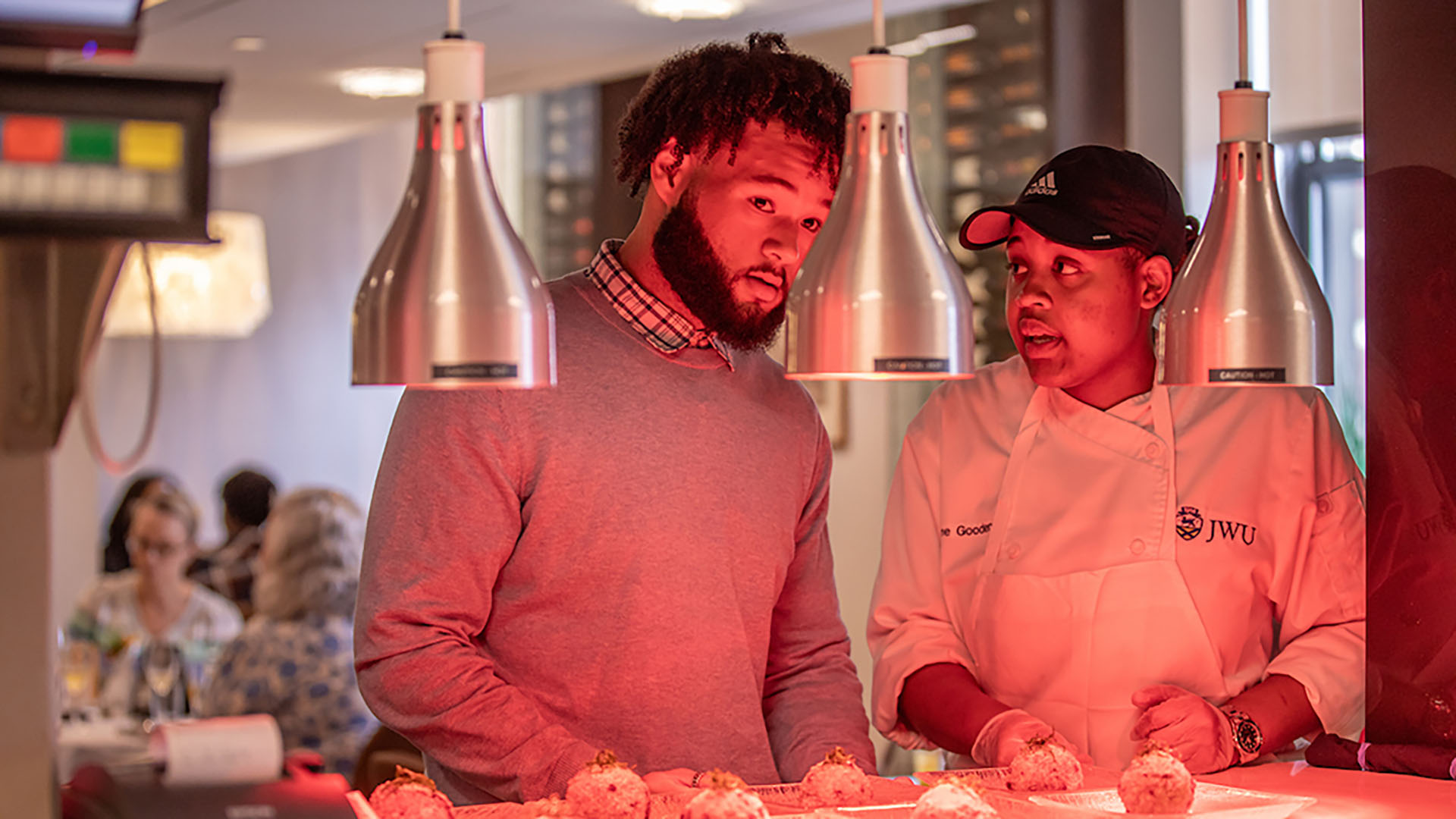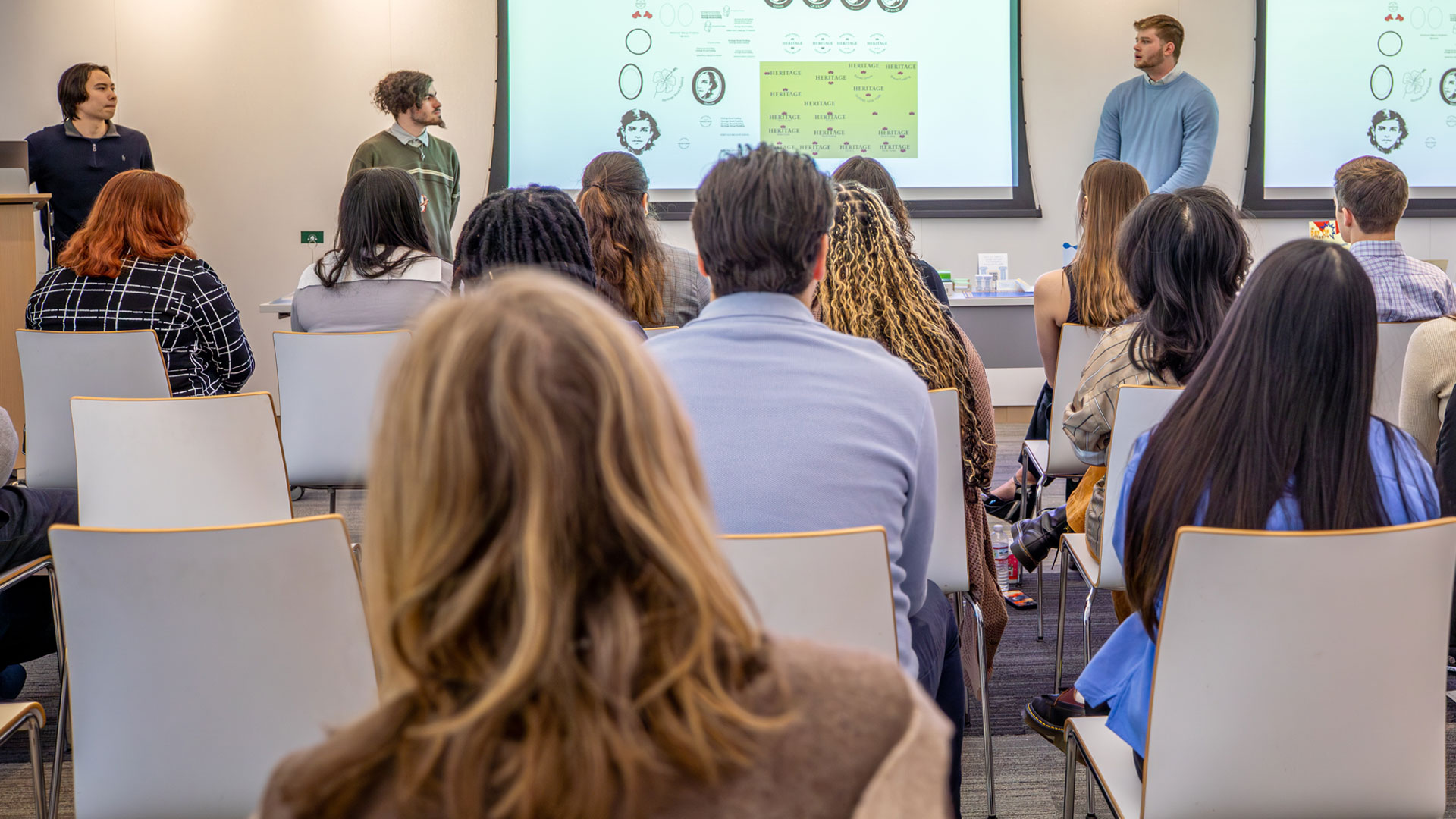Inside JWU's Unique Approach to Experiential Education
People learn by doing, which is why we make sure our students are always in action. Whether they’re touring local businesses to explore their inner workings, holding debates in the classroom or simulating real-world scenarios in our learning labs, Johnson & Wales students are gaining valuable hands-on experience in every course they take.
This happens in every major across our four colleges: The John Hazen White College of Arts & Sciences, the College of Food Innovation & Technology, the College of Health & Wellness and the College of Hospitality & Business. There are so many examples of the incredible things our students are doing, but we chose some of our recent favorites from each college.
Arts & Sciences
Students in the Animal Science program spend a lot of time at our on-campus chicken coop, caring for the hens and working with culinary students to see how different feeds can affect egg quality. This program also takes weekly trips to local zoos, aquariums, farms, research facilities and animal shelters to work with animals and learn more from professionals in the industry.
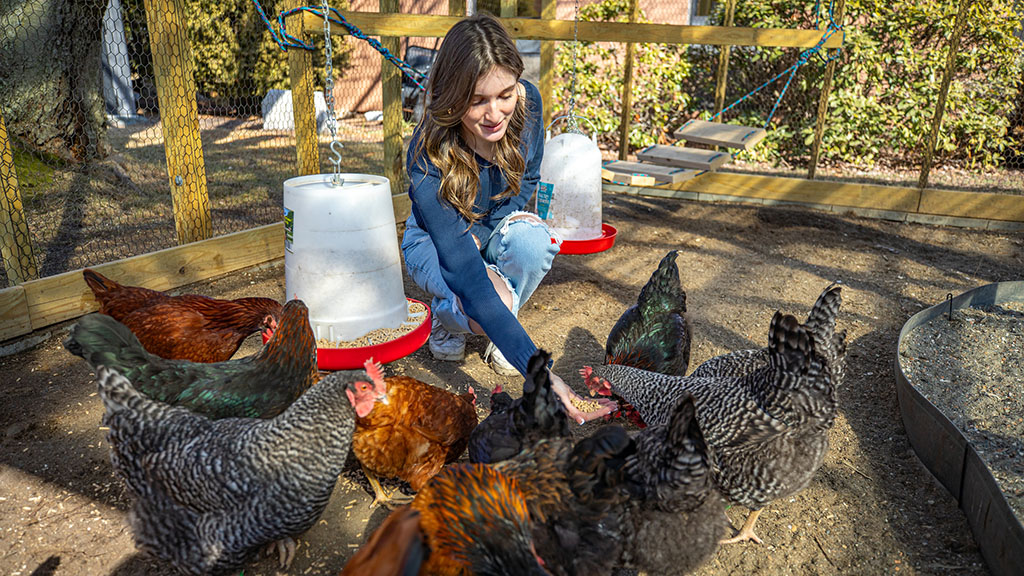
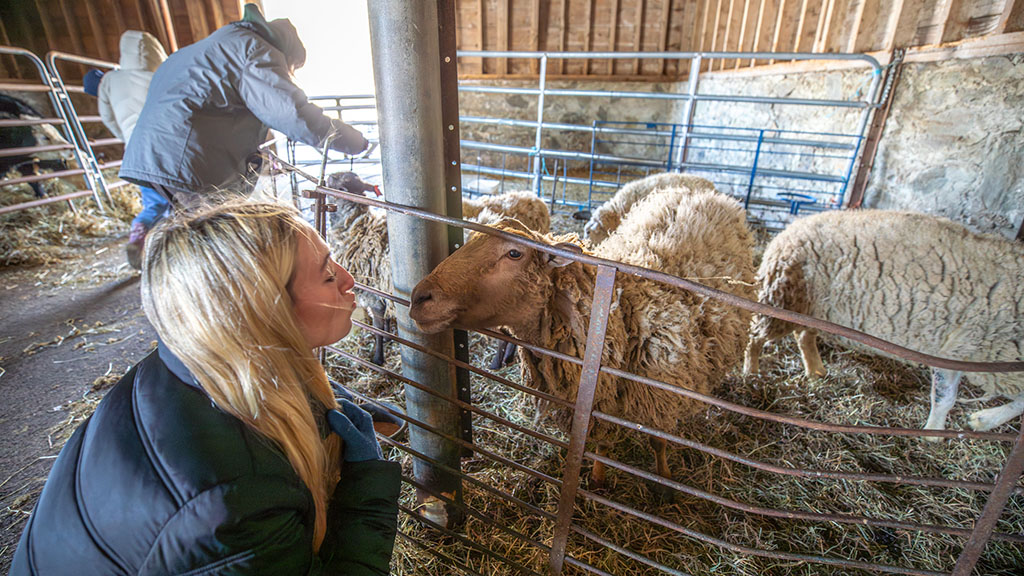
Design students in the GDES Design Team I course work with real clients on a variety of design projects. This semester, they have been working in conjunction with Entrepreneurship students to assist an external client, Heritage Bread Pudding, with updating their visual materials and website. Design Team has also assisted culinary students with designing promotional materials for culinary pop-up events on campus. They also recently kicked off their partnership with senior culinary and baking students to help them design visuals for their capstone projects, which will be presented at the annual Senior Buffet.
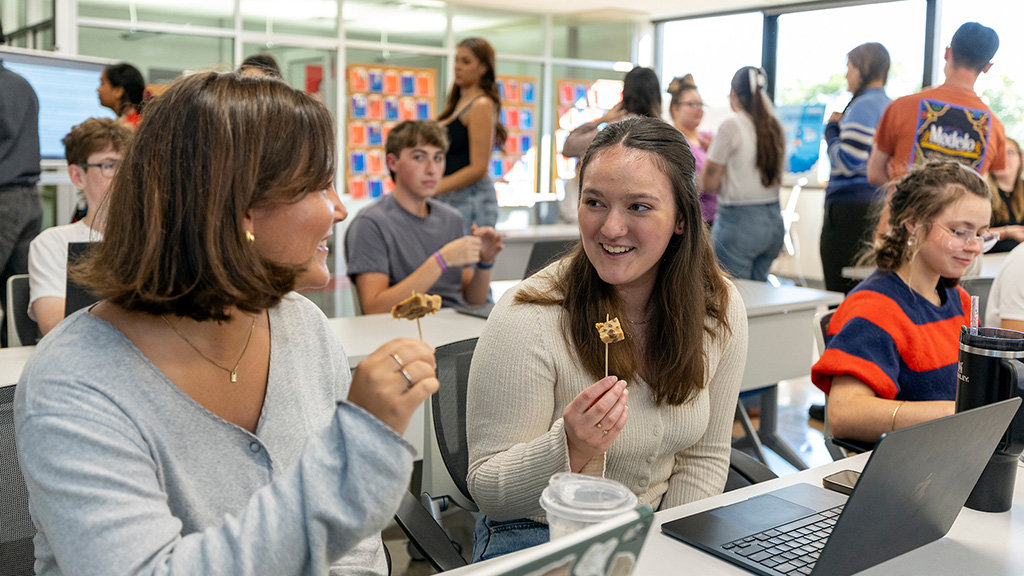
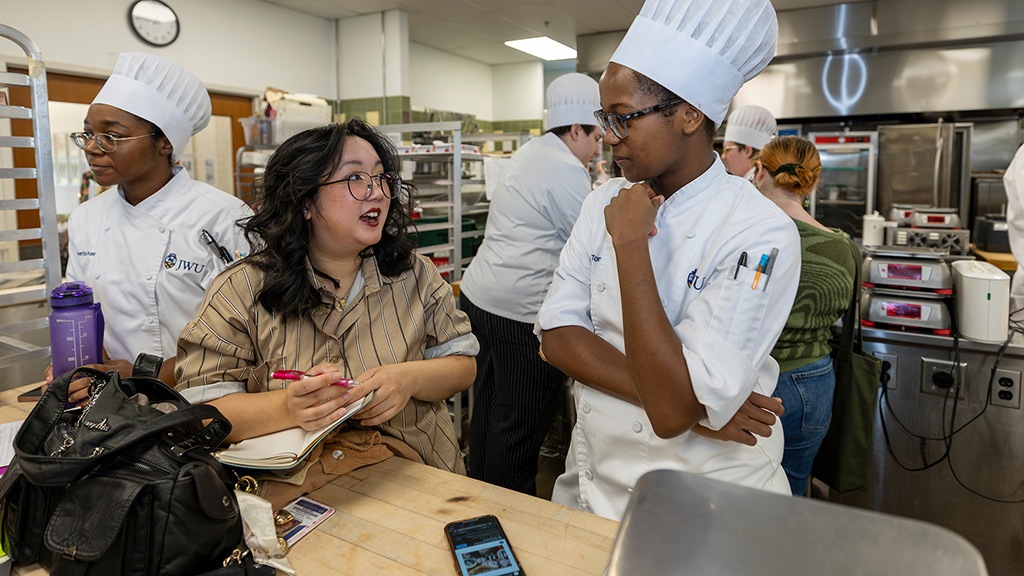
Food & Innovation Technology
The delicious creations that come from the culinary and baking kitchens are a great reflection of what students are learning, but what happens outside the kitchen is just as important. For example, Sustainable Food Systems courses bring students on tours of local agricultural, food distribution, food retail, restaurant, governmental and nonprofit organizations to learn about the challenges and complexities of producing food from the people who do it. This semester, students have visited local pig and egg farms, and they have even hit the open water on a mussel boat.
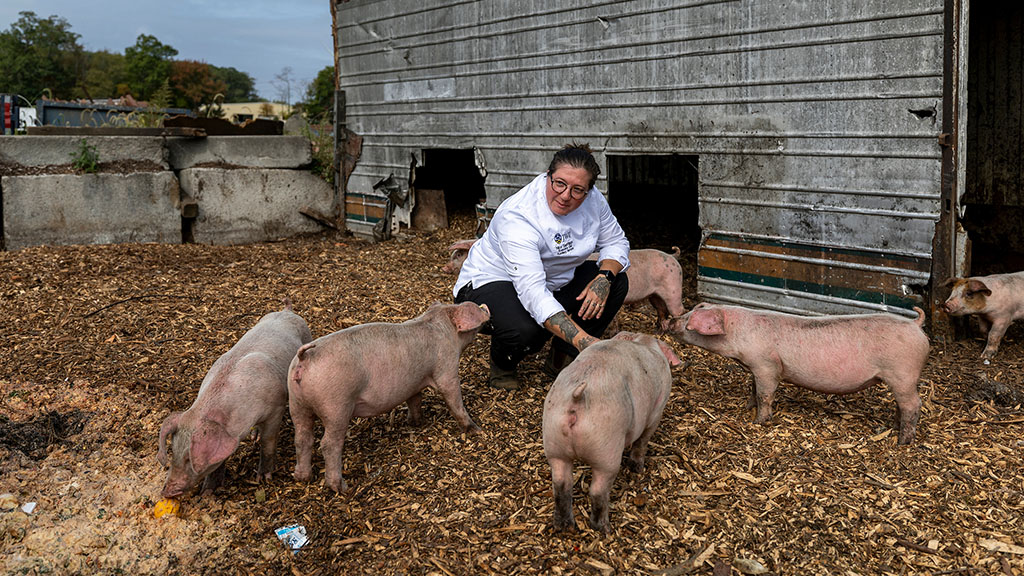
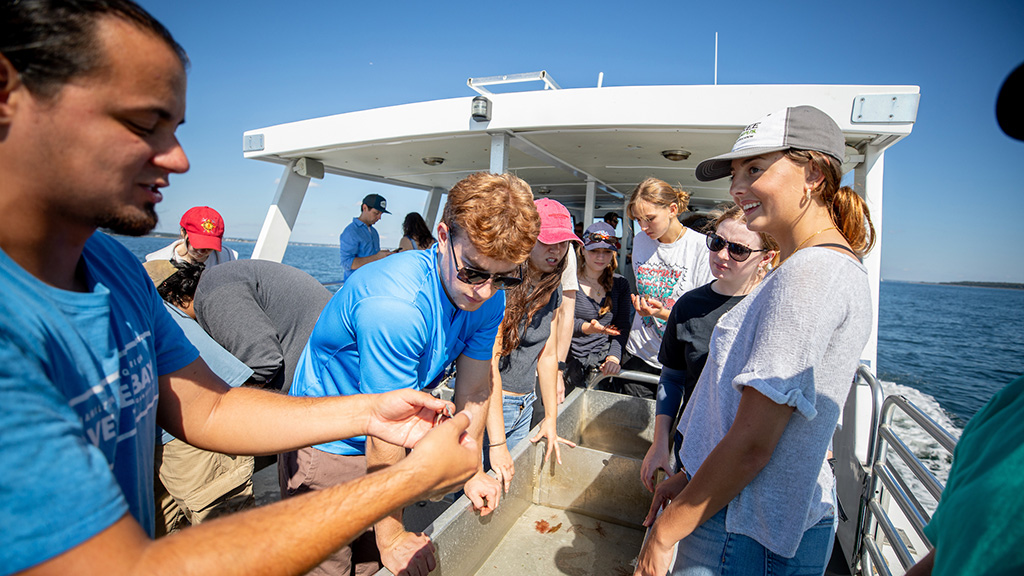
Health & Wellness
Exercise and Sports Science students in the ESS4015 Human Performance Laboratory course learn how to practice and instruct patients in resistance training, plyometric, speed mechanics, aerobic and nontraditional exercises. Using real subjects (their fellow classmates) they also learn how to safely conduct different performance tests and learn how to analyze and interpret the results.
View this post on Instagram
Research plays an important role in health care and medical advancements, which is why the HSC2400 Research Methods for Health Science class is a required major course for all undergraduate Health & Wellness students. This course introduces students to a variety of research methods and emphasizes the importance of accurate and ethical research. Students then select a topic of their choice and develop a research plan, which can prepare them for the many opportunities for undergraduate research and publication at JWU through our Center for Student Research & Interdisciplinary Collaboration.
In fact, 10 of our students were recently published in the June 2025 issue of the Rhode Island Medical Journal. They conducted research in partnership with the Rhode Island Department of Behavioral Healthcare, Developmental Disabilities & Hospitals (BHDDH). Island to explore a variety of behavioral issues impacting young adults in the state.
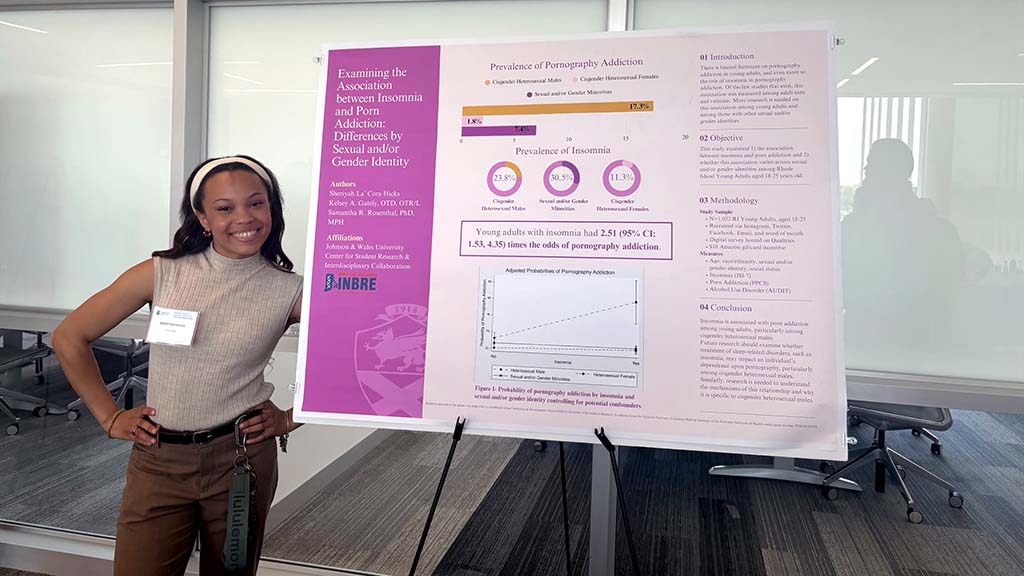
Hospitality & Business
Hospitality students in the FSM4061 Advanced Food Service Operations course manage a real service in the fully-functional restaurants we have at both our Providence and Charlotte Campuses. This includes developing menus, scheduling and managing staff, tracking costs, planning production and executing a successful service.
View this post on Instagram
Entrepreneurship students perfect their business pitch in the ENTR2030 Pitching & Planning New Ventures course, where they learn how to develop and present a professional business plan to pitch to potential investors. By the end of the course, they will have created an executive summary, a 30-second elevator pitch and short presentation to “sell” their business concept to investors.
This can come in handy if they want to compete in the annual JWU Sharkfest competition, where students pitch their idea to a panel of judges in front of a live audience to win cash prizes to fund their ventures.
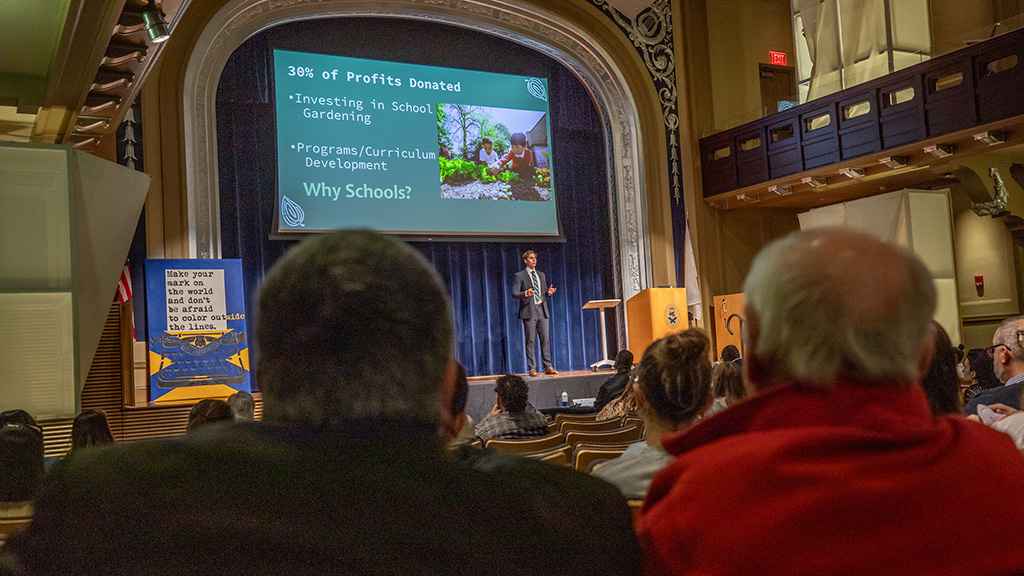
JWU’s Unique Approach to Experiential Education
Many colleges offer experiential education, but our approach is unique. JWU’s Reimagining Experiential & Applied Learning (REAL) approach to education brings active learning and experiential components into every single course students take. Expanding beyond traditional lectures, REAL offers classroom experiences that center on simulation, gamification, research and field work, studios, labs, field trips, service learning, industry projects, role-playing, debates and other exercises. We are one of the only universities in the country that has scaled up this approach across all colleges and programs.
“Industries want students to come in with transferable skills,” says Sheri Young, assistant provost for experiential education & industry relations. “REAL’s emphasis on applied learning responds directly to that expectation. Students still need the industry skill sets, but no matter what industry, what position, what company, they all need these basic career competencies: communication, critical thinking, leadership, professionalism and teamwork.” Young offered some examples of how each competency has been met through REAL in different courses.
Communication
Students in the ENG1030 Communication Skills course learn the elements of public speaking, gaining an understanding of the audience along with confidence and experience in speaking, listening and small group interactions.
Critical Thinking
In the PSYC1001 Introductory Psychology course, students engage in case studies and role-playing exercises that allow them to explore ethical dilemmas in psychology and prepare them to handle complex issues.
Leadership
In CSLG3010 Principles of Group Counseling, students step into the role of facilitator after observing expert modeling. One student said the experience gave them the confidence to co-lead a real counseling group during their internship.
Professionalism
In the HOSP3085 International Hotel Operations, Development and Management course, students conducted on-the-ground research in Mexico analyzing Marriott’s acquisition of City Express and applying insights to brand expansion strategies.
Teamwork
Students in the IBUS2002 International Business course ran virtual tech companies through an online business strategy simulation. They competed against 1,500 college and university teams worldwide, ranking in the top 100.
“It's a teaching method that ensures students are not only reflecting on the course content, but also reflecting on their own learning,” says Young. She and several other JWU faculty members have led the creation and rollout of the REAL approach across all JWU’s colleges, programs and courses.
REAL is based on David Kolb’s Model for Experiential Learning theory. Kolb has long been a pioneer in experiential learning research — he founded the Experience Based Learning Systems organization in 1980 with the goal of advancing the theory and practice of experiential learning. His model describes learning as a cyclical process of experiencing, reflecting, thinking and acting. Students experience a learning activity, take time to reflect on what was learned, think critically about the lesson to reach conclusions or theories, and put those conclusions or theories into action by directly applying them to another experience.
The reflection component is an important piece that encourages students to make more meaningful connections with what they’re learning about by applying it to their own goals and experiences.
